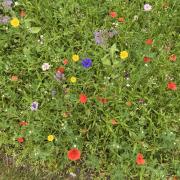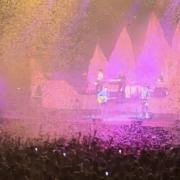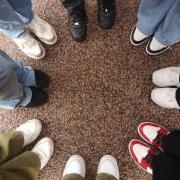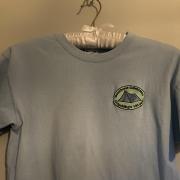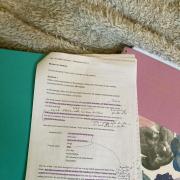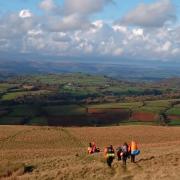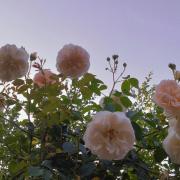
Why do we need to save water?
Water is an essential resource to our planet. We rely on water for everything we eat and drink, for washing and to help create the energy that we need for heat and light. It is also essential for the products we enjoy and the rivers, fields, forest and beaches that we love. Without water life as we know it would be impossible.
Around 71% of the earth's surface is covered with water and 60% of an adult human body is made up of water. Without water nothing would function properly. Climate change is not helping our situation either, as it brings a huge risk of drought and flooding. This means as our population is growing we can’t supply the water needed. Research shows that if we keep on doing what we are doing and don’t drastically reduce the amount of water we use there will be severe water shortages all over the world and a recent analysis by the BBC shows that the most vulnerable cities which are most likely to run out of drinking water in the near future are in fact Beijing, Tokyo and London. This will affect us.
One of the main reasons why we are running out of water is drought. Drought is when an area or region receives a below-normal amount of precipitation. This can be because of atmospheric, surface or groundwater shortages. Drought can also be caused by changes in climate, human activities and over-exploitation. Drought leads to water shortages and water shortages have many different effects including social, economic and environmental. One social effect of drought is that people will suffer from health issues because of the dust as the ground is so dry and there is no water for people to drink. An economic impact is companies that rely on water to travel (like barges or ships) will not be able to use rivers, streams or canals as there will be no water in them. This means there will be no income for the employees. This also means that if the boat is sending or receiving goods and taking them somewhere this cannot happen. An environmental effect of drought is there will be no water for wildlife to drink and there may not be any water in lakes or rivers and in consequence species living in the water will have a loss of their habitat. Drought causes an estimated 55million people to suffer. We can't stop drought, but we can prepare for it by saving water. Imagine turning on your tap and only a drop of water comes out.
You may wonder how water gets to our taps. Well, there are many processes to make fresh and reliable drinking water reach your home and it all starts from the water cycle. The water cycle is made up of four steps: evaporation, condensation, precipitation and collection. Energy from the sun heats up water surfaces causing it to rise. When this happens some of the surface water evaporates up into the air by turning into water vapor (a gas). Now as the water vapor rises into the atmosphere, it cools down and turns back into a liquid. This forms clouds. When too much water has condensed, the water droplets in the clouds become too big and heavy for the air to hold them. Consequently, they fall back down the earth as rain. But you may wonder how this rain then gets from the earth to your tap? The first step is getting water from the rivers and the ground to reservoirs. 23% of the water comes from rivers and 73% from the ground using chalk aquifers. Now the water is at the reservoirs it gets cleaned, purified and made safe for human consumption before it is piped to the consumer, namely you and i. After the water has been used it is collected in the sewers, ready to be treated. According to Southern Water in our region they supply 532 million liters of water per day. A large proportion of this water is recycled and treated but 185 million liters of water is wasted per day and that adds up to 67,525 million liters of water wasted per year.
Without water no plants would be able to grow, no sea life would be able to live and the world just wouldn’t work properly. It only takes a matter of days for someone to die if there is no fresh water for them to drink. Although it may be nice having hot summers and dry winters, there will be a long term sustainability issue, this means that water companies have to look at weather forecasts to help them prepare for future events by maintaining reservoirs. For example spring 2020 was the driest on record which meant that water companies had to take this into consideration to make sure we were able to shower, water plants, fill paddling pools, wash cars and have drinking water coming from our taps. It seems unimaginable not being able to put the washing machine or dishwasher on, not being able to get a drink or even shower because that's what it could be like in 20 years unless our habits change.
This does sound very bad and bleak however there are ways that we can all help. Simple things such as turning off your tap when you are cleaning your teeth or cleaning food, setting time limits to 3.5 mins when showering and even just only using washing machines and dishwashers when they are full loads will really help save water. Data has shown that filling up a 3,000 liter paddling pool is the equivalent to 2,000 hand washes, 7,500 cups of tea and 300 toilet flushes. However, if we put a limit to how much water should be used for paddling pools this could help with our crisis. There can be solutions. You can take things further and install more advanced equipment such as low flush toilets, purchase shower and tap flow reducer sets to install into your home, install a water butt in your garden which can be used to water your plants and even create a drought garden. A drought garden is used to save water and prevent droughts. They use pebbles instead of grass (the pebbles allow the water to trickle down them to be collected instead of just being infiltrated into the soil) and they also use plants such as flox, creeping thyme and abrecia because they don’t need to be watered often as using a sprinkler or hose typically uses 1000 liters of water per hour. Weed suppressant membranes can also be put over the previous lawn to stop weeds growing through the gravel and if you still want greenery then you can add an artificial lawn because it doesn't need to be watered.
Water is something that we all take for granted but is one of the most valuable resources on our suffering planet which we all need to help save. If you wish to educate yourself further into this important topic then you can visit our local Southern Water website or look on YouTube to learn more ways on how you can save water at home. I believe together we can save our water and help our planet before it's too late.






